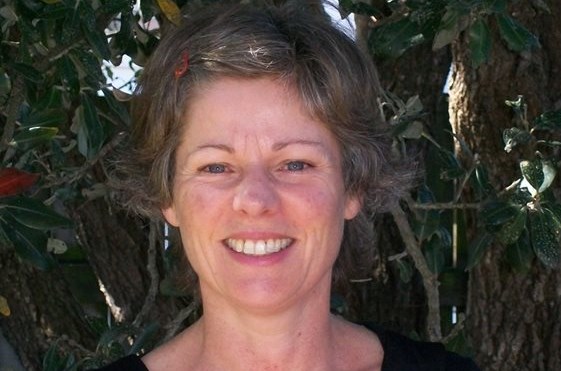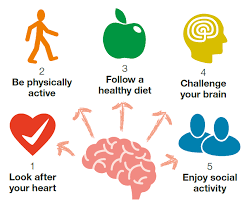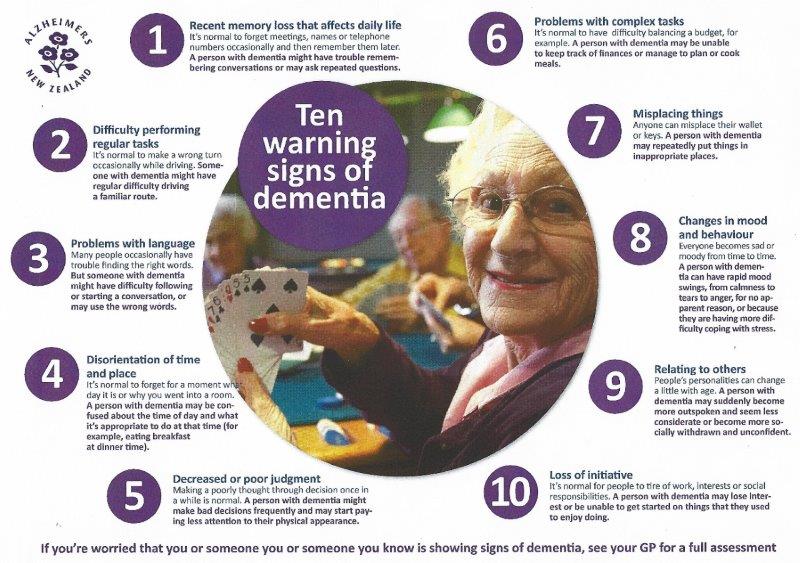 Emma Fromings, from Alzheimers Wellington, started her presentation with the question “who is associated with someone diagnosed with dementia or knows someone with dementia?” Somewhat surprisingly, her audience found that about half of them could answer 'yes' and that their response mirrored that of similar groups in New Zealand.
Emma Fromings, from Alzheimers Wellington, started her presentation with the question “who is associated with someone diagnosed with dementia or knows someone with dementia?” Somewhat surprisingly, her audience found that about half of them could answer 'yes' and that their response mirrored that of similar groups in New Zealand.
 The statistics for dementia in New Zealand appear, on the surface, a little scary. The chart shows numbers growing from about 60,000 in 2016 t0 170,000 by 2050. While these numbers show an obvious increase, it pays to look a bit more carefully at the statistics as the numbers show prevalence and not incidence and nor do they reflect the change in the age of the population. There is also a question of how well these statistics are collected.
The statistics for dementia in New Zealand appear, on the surface, a little scary. The chart shows numbers growing from about 60,000 in 2016 t0 170,000 by 2050. While these numbers show an obvious increase, it pays to look a bit more carefully at the statistics as the numbers show prevalence and not incidence and nor do they reflect the change in the age of the population. There is also a question of how well these statistics are collected.
That is the gloomy side but as always, there are often two sides to a story. Age is often seen as a factor. However, the real story is that 75% of people over eighty do not have dementia and for those over ninety only 50% will have dementia. While age presents an increased risk, it is not a given that dementia will arise and, in fact, the incidence of dementia is showing a downward trend.
 The population is becoming healthier with more focus on the five things everyone can do to keep their brain healthy.
The population is becoming healthier with more focus on the five things everyone can do to keep their brain healthy.
Emma challenged the audience to decide which of the five they did best and what they did the least of, and then discuss it with their tablemate. An animated discussion ensued.
Emma's key message was that keeping your brain healthy is very important in preventing dementia and there are plenty of strategies to help us do that, including being a Rotarian.
Of the five numbers, two and five are the most important.
Dementia, notwithstanding all the healthy things you have done, can be either:
- Alzheimer's, where the chemical structure of the brain is affected, messages around the brain are disrupted and brain cells die. This represents between 50-60% of dementia cases.
- Vascular where the blood supply to the brain is inadequate and this can be either chronic or acute. 10-20% of dementia cases are vascular.
 The progression of dementia is slow and it may take from five to ten years from onset to end of life. Early diagnosis is important and leads to an improved quality of life. To make this more effective all GPs now have access to a dementia pathway programme to aid diagnosis.
The progression of dementia is slow and it may take from five to ten years from onset to end of life. Early diagnosis is important and leads to an improved quality of life. To make this more effective all GPs now have access to a dementia pathway programme to aid diagnosis.
Post-diagnosis, there is significant help available through Alzheimers Wellington so do not be afraid, or cautious, about asking for advice and help. The service receives some funding from the health system but also relies heavily on volunteers and
The following websites provide useful information:
- Your Brain Matters
- Brain Health
- Preventing Dementia Online Course University of Tasmania
- Alzheimers Wellington
Emma Fromings, Dementia Advisor - Education, finished her presentation with the following quote:
People may not remember what you say
People may not remember what you do
But people will always remember how you made them feel.
Editor's note: If you would like to get in touch with Emma direct, you can ring her on 0800 004 001. She works Monday to Thursday.
